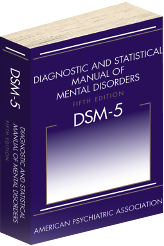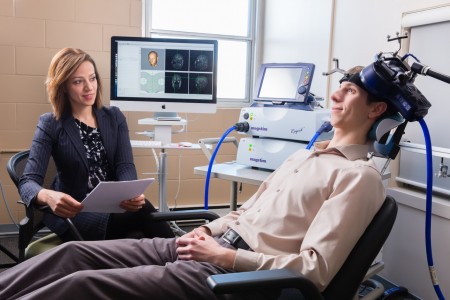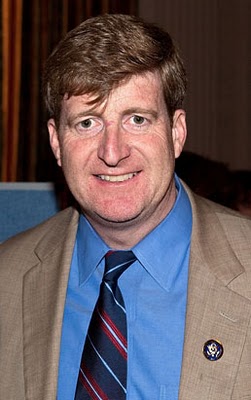Projected Health Outcomes Associated With 3 US Supreme Court Decisions in 2022 on COVID-19 Workplace Protections, Handgun-Carry Restrictions, and Abortion Rights
Adam Gaffney et al reported in JAMA New. Open (2023) reported “In this decision analytical modeling study, the model projected that the Supreme Court ruling to invalidate COVID-19 workplace protections was associated with?1402 deaths in early 2022. The model also projected that the court’s decision to end handgun-carry restrictions will result in 152 additional firearm-related deaths annually, and that its decision to revoke the constitutional right to abortion will result in 6 to 15 deaths and hundreds of cases of peripartum morbidity each year.
Meaning: These findings suggest that over a decade, “the 3 Supreme Court decisions examined here will contribute to the loss of nearly 3000 US lives and possibly many more.”
Early Intervention Improves Outcomes in Early-Stage Schizophrenia
A recent meta-analysis of 10 studies found that early intervention after a first episode of psychosis or in the early stages of a schizophrenia spectrum disorder led to better patient outcomes than treatment as usual.
The meta-analysis by researcher Christoph U. Correll and colleagues appeared in the journal JAMA Psychiatry in 2018. The 10 studies that were included had randomized a total of 2,176 patients to receive either treatment as usual or early intervention services, which typically include efforts at early detection of symptoms, early treatment with low doses of antipsychotic medication, interventions to prevent relapse, and strategies to help patients return to normal work and social activities.
Those patients who received early intervention services were less likely to discontinue treatment, were less likely to have a psychiatric hospitalization, were more involved in school or work, and had less severe symptoms, including both positive and negative symptoms of schizophrenia.
The authors called for better funding and implementation of early intervention services in early psychosis or the beginning stages of schizophrenia.
Editor’s Note: This finding with regard to schizophrenia spectrum disorders emphasizes the enormous disparity in allocation of research resources for the study of early psychosis versus early bipolar disorder, where almost no studies of this kind have been done.
The mean age of the patients in this psychosis meta-analysis was 27.5 years. Symptoms of bipolar disorder can often begin earlier, in childhood, and early onset of bipolar disorder predicts poor long-term outcomes into adulthood and is associated with a high risk of substance abuse and suicide. This editor (Robert M. Post) and many colleagues have witnessed two decades of scientific literature on early-onset bipolar disorder. We know that early intervention is necessary, but more treatment studies are needed at the early stages of the illness, and calls for funding treatment-focused research have gone unheeded.
More advocacy is needed among families affected by bipolar disorder and advocacy groups interested in better treatment of bipolar disorder. We must try to change the abysmal status quo and campaign publicly, privately, and politically for more funds and public health attention to be directed toward early intervention in bipolar disorder.
Poll Finds 87% of US Adults Think Children Need More Mental Health Support
In a poll of 2,014 adults in the US, 87% believed that children need more mental health support. For over a decade, the editors of the BNN have been emphasizing the great need for earlier recognition and treatment of children with bipolar and related mood and behavioral disorders. With so many Americans in agreement, now could be the time to direct public health and research funds to the better support of children’s mental health. Sadly this does not yet seem to be the case, but this is an election year. We need stand-up leaders in Congress to marshal the resources to increase the well-being of current and future generations.
Pediatric Bipolar Disorder Diagnoses Much More Common in US than England
 A 2014 article by Anthony James and colleagues in the Journal of the American Academy of Child and Adolescent Psychiatry reported that hospitalizations for pediatric bipolar disorder are 72.1 times higher in the US than in England.
A 2014 article by Anthony James and colleagues in the Journal of the American Academy of Child and Adolescent Psychiatry reported that hospitalizations for pediatric bipolar disorder are 72.1 times higher in the US than in England.
The researchers determined that there were 100.9 diagnoses of pediatric bipolar disorder per 100,000 people in the US, but only 1.4 cases per 100,000 people in Britain. The discrepancy in diagnoses for adult bipolar disorder and for other childhood psychiatry illnesses were smaller but still notable: While 158.2 adults per 100,000 in the US were diagnosed with bipolar disorder, only 22.1 adults per 100,000 in England received such a diagnosis, making the diagnosis of bipolar disorder in adults 7.2 times more common in the US. Diagnoses of childhood attention-deficit hyperactivity disorder (ADHD) were 13.0 times more common in the US than in England, while cases of childhood depression were 4.2 times more common in the US.
James and colleagues hypothesized several potential reasons for the dramatic difference in diagnosis rates at hospital discharge of bipolar disorder in children in the US versus England. The lower hospitalization rates for pediatric bipolar disorder in England may reflect the better availability of community or outpatient treatment options there. Diagnostic practices may also differ. James and colleagues suggested that in the US, pediatric diagnoses of bipolar disorder are often used to describe children and adolescents with irritability and frequent mood shifts, whereas English diagnostic practices rely more on episodic bouts of euphoria to diagnose bipolar disorder in children.
However, children in the US may simply be more likely to have a variety of childhood psychiatric disorders than those from England.
Editor’s Note: Epidemiological data support the view that bipolar disorder not otherwise specified (BP-NOS), which is often the earliest manifestation of bipolar disorder, is indeed much more common in the US than multiple other countries.
Even if there are some diagnostic differences that contribute to the immense 72.1 fold higher rates of hospitalization for childhood bipolar in the US compared to Britain, one cannot overlook the findings that these children are requiring hospitalization for something resembling bipolar disorder and are in need of treatment. Read more
US Lags Behind Canada in Access to RTMS
At the 2015 meeting of the Transcranial Magnetic Stimulation Society, Linda Carpenter, an American researcher who specializes in repeated transcranial magnetic stimulation (rTMS), a method of treating depression by using a magnetic coil placed near the scalp to stimulate neurons, compared notes with Jeff Daskalakis, a Canadian researcher who also studies rTMS.
Carpenter described the limited approval rTMS enjoys in the US. RTMS has been approved by the Federal Drug Administration for the treatment of unipolar depression under very limited parameters (only at a frequency of 10Hz). RTMS has limited availability in the US, and many healthcare companies do not cover it. Providers face scrutiny of study recruitment practices and recordkeeping by insurers and the Joint Commission (formerly the Joint Commission of Accreditation of Healthcare Organizations), which assesses healthcare quality.
In contrast, Daskalakis and his Canadian colleagues can and do use rTMS to treat a broader range of illnesses including bipolar disorder. In Canada rTMS is used to treat unipolar depression, schizophrenia, post-traumatic stress disorder (PTSD), and obsessive-compulsive disorder (OCD), and clinicians can adjust the parameters to treat adolescents and the elderly.
The situation in the US is unfair. Because rTMS has not been approved for the treatment of bipolar disorder, Carpenter and other clinicians in the US are unable to treat bipolar depression even though a wide range of experts and published studies report that rTMS is as effective (or possibly even more so) for patients with bipolar depression than for those with unipolar depression.
Few treatments are available for bipolar depression. The discrepancy is even sadder when one considers that there are already more than 20 FDA-approved antidepressants that can be used to treat unipolar depression, but only three approved medications for bipolar depression. Bipolar depression is an orphan illness, which lacks a powerful voice advocating for more treatment research about optimal therapeutic strategies. Read more
International Bipolar Foundation Advocates for Prompt Treatment of Children
 Muffy Walker gave an inspirational talk at the 2014 meeting of the International Society for Bipolar Disorders about the International Bipolar Foundation (IBPF, formerly known as the California Bipolar Foundation) she started with three other mothers of children with bipolar disorder. The organization advocates for better understanding and treatment of the illness in children. Treatment is too often delayed and insufficient, as was the case with Walker’s son, who started having trouble at age four and was diagnosed with post-traumatic stress disorder (PTSD), oppositional defiant disorder (ODD), attention-deficit hyperactivity disorder (ADHD), and conduct disorder (CD) before he became severely manic while taking the antidepressant fluoxetine (Prozac). The foundation has a monthly e-newsletter. Their website is http://ibpf.org.
Muffy Walker gave an inspirational talk at the 2014 meeting of the International Society for Bipolar Disorders about the International Bipolar Foundation (IBPF, formerly known as the California Bipolar Foundation) she started with three other mothers of children with bipolar disorder. The organization advocates for better understanding and treatment of the illness in children. Treatment is too often delayed and insufficient, as was the case with Walker’s son, who started having trouble at age four and was diagnosed with post-traumatic stress disorder (PTSD), oppositional defiant disorder (ODD), attention-deficit hyperactivity disorder (ADHD), and conduct disorder (CD) before he became severely manic while taking the antidepressant fluoxetine (Prozac). The foundation has a monthly e-newsletter. Their website is http://ibpf.org.
Mental Health Care Parity Ruling Announced
In 2013 we described a speech given by Congressman Patrick J. Kennedy about the need for parity in care for people with mental illnesses. In late 2013, Health and Human Services Secretary Kathleen Sebelius issued a final rule on the Mental Health Parity and Addiction Equity Act of 2008, effectively requiring that health insurance coverage for mental health and substance abuse treatment be comparable to coverage of physical ailments.
The rule was prompted in part by mass shootings that were linked to mental health patients. Sebelius announced the new rule at a press conference with former first lady Rosalynn Carter, who has been a supporter of mental health research for decades.
According to the New York Times, state insurance commissioners will need to enforce the new rule, and more money may be required to fund behavioral health clinics.
This historic milestone may allow patients to get medical care they had previously been unable to afford.
Treatment Research Needs More Advocacy
Among the hundreds of posters, workshops, clinical perspectives, and symposia presented over five days at the 2013 meeting of the American Academy of Child and Adolescent Psychiatry (AACAP), there were almost no posters or presentations on new approaches to treatment (either with drugs or therapy) for children with bipolar disorder.
As we have repeatedly emphasized in the BNN and in research publications, this deficiency has adverse consequences for the many hundreds of thousands of children and adolescents in the US with unequivocal diagnoses of bipolar disorder. Suicide is now the second leading cause of death in adolescents 13 to 17 years of age in the US. Most of these young people have a mood disorder. Bipolar disorder carries with it not only a substantial risk of suicide, but also the potential for a lifetime of dysfunction, disability, and medical comorbidity if it is inadequately treated.
Please advocate for more treatment research for childhood onset bipolar disorder. A whole generation of children, their parents, and their physicians desperately need more treatment information.
The NIMH May Move Away from Using DSM-5
 The psychiatric community has been preparing for the 2013 release of the Diagnostic and Statistical Manual of Mental Disorders, Fifth Edition (DSM-5) by the American Psychiatric Association for years. Each new edition of the manual reflects changing conceptions of illnesses and their diagnosis and treatment.
The psychiatric community has been preparing for the 2013 release of the Diagnostic and Statistical Manual of Mental Disorders, Fifth Edition (DSM-5) by the American Psychiatric Association for years. Each new edition of the manual reflects changing conceptions of illnesses and their diagnosis and treatment.
Tom Insel, the director of the National Institute of Mental Health (NIMH), the largest research organization in the world devoted to the understanding and treatment of mental disorders, caused a stir this past spring when he wrote in a blog post that the DSM-5 lacks validity and that patients deserve better.
The DSM-5 guidelines for diagnosis of mental disorders rely on descriptions of clusters of symptoms, and Insel suggested that new methods of diagnosis that rely on laboratory measure should be developed. The NIMH is launching a project called Research Domain Criteria (RDoC) to incorporate genetics, imaging, and other data in a new classification system for illnesses, and is re-orienting their funding toward projects that “look across current categories,” for example by including all patients in a mood disorder clinic rather than only those who meet DSM-5 criteria for major depressive disorder.
A major concern about this change at the NIMH, which funds much of the research that leads to Federal Drug Administration-approved treatments, is that it will diminish funding for treatment studies in specific diagnostic categories where research is already sparse, such as childhood onset bipolar illness. This may leave many children and adults without a sound evidence base upon which their doctors can base treatment decisions.
Under the NIMH’s new rubric, clinical treatment studies to collect comparative data and evidence-based treatment research would likely lose out to studies focused on the broad collection and identification of biomarkers and the pursuit of new treatment targets. Answering an important clinical question such as whether symptoms of childhood onset bipolar disorder respond to the same medications as oppositional defiant disorder (ODD) or disruptive mood dysregulation disorder (DMDD) might not be a high priority for study.
David Kupfer, chair of the APA’s DSM-5 Task Force, responded to Insel’s statement saying that while it would be great to identify biomarkers and genetic indicators for mental illnesses, “this promise, which we have anticipated since the 1970s, remains disappointingly distant.” Insel acknowledged in his statement that this is only the beginning of development of research domain criteria, and that “for the present” the DSM will continue to be used.
Congressman Patrick Kennedy Says Parity in the Treatment of Mental Illnesses Is Needed
At the 10th International Conference on Bipolar Disorders in 2013, Congressman Patrick J. Kennedy addressed the combined audience of the Depression Bipolar Support Alliance (DBSA) and members of the International Society of Bipolar Disorders. He gave an inspiring speech about de-stigmatizing advocacy, and the need to have a unified message that promotes parity in the care of mental illnesses and physical illnesses. He suggested that mental disorders should be compared to heart attacks, with the mantra, “We want no more, and we should demand no less.”
Kennedy revealed his own dual diagnosis of bipolar disorder and alcohol abuse and the need to come out of the shadows, such as the basements of churches where people seeking treatment from Alcoholics Anonymous all too often remain unknown and anonymous.
Kennedy framed the issue of parity in the care of mental illnesses as a new civil rights battle. People with mental illness have been grossly discriminated against, stigmatized with derogatory epithets, and treated with indignity in the past. He stressed the need for all to advocate not so much for themselves, but for others, and to join in community to solve our current problem of isolation and alienation.
Kennedy indicated optimism for the parity mission and suggested that a good way to achieve it would be to join forces with another isolated group of young people—veterans returning from Iraq and Afghanistan. While many veterans return with brain injuries and post-traumatic stress syndrome (PTSD), seventy-two percent of veterans never go to the Veteran’s Affairs hospitals, many are ignored, and too many are locked up in prisons. Kennedy called them “prisoners of their war injuries” and “walking prisoners of war.” Twenty-two die each day by suicide.
Kennedy said we in the mental health community must stand with them and their hidden brain injuries. They are wounded, but they never receive a purple heart. He quoted a speech his uncle Robert F. Kennedy gave in Cape Town, South Africa in 1966 before anyone thought that apartheid would end. “It is from numberless diverse acts of courage and belief that human history is shaped. Each time a [person] stands up for an ideal, or acts to improve the lot of others, or strikes out against injustice, [that person] sends forth a tiny ripple of hope, and crossing each other from a million different centers of energy and daring, those ripples build a current that can sweep down the mightiest walls of oppression and resistance.”
In the mental health community we need each other and can’t afford different messages or fragmentation. Mental health advocates joining with veterans and their search for good care will be our salvation, as will our connectedness, togetherness, mutual respect, and these will yield solutions for both groups.







